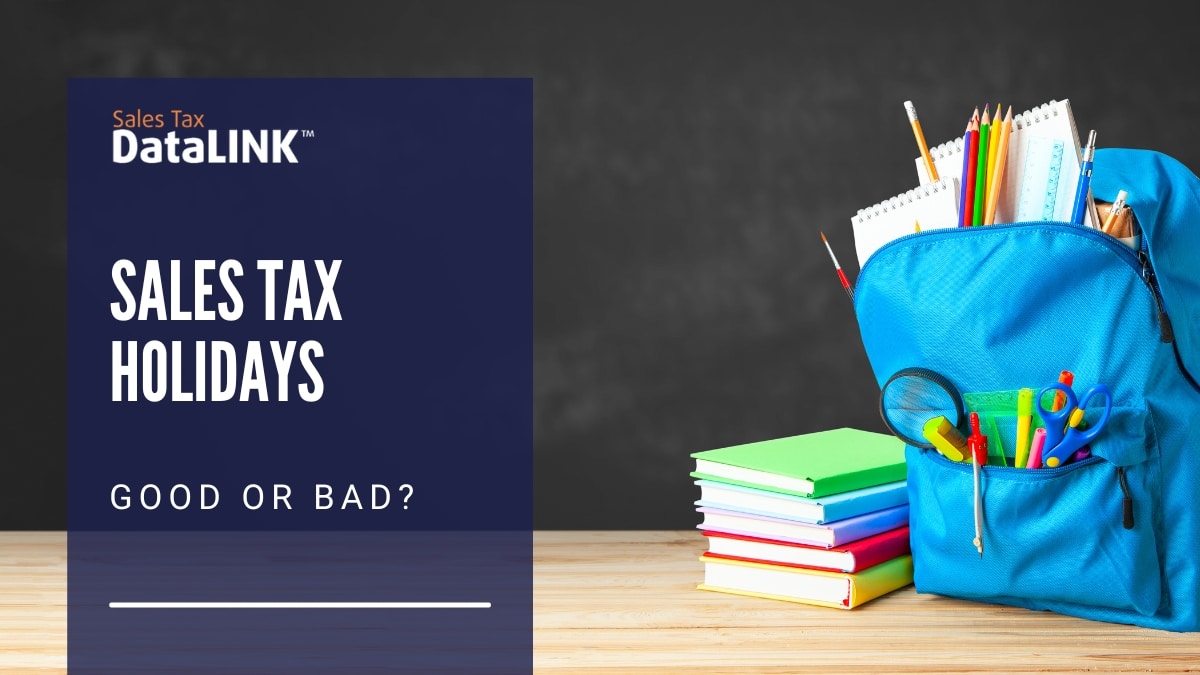Sales tax holidays in 16 states are bringing Back to School shoppers to malls and Big Box stores. And it’s not just Back to School, with savings on clothing and supplies. Other states have small business tax specials, sales tax-free purchases for the hunting season, or sales tax savings on sustainable household goods.
Shoppers can skip sales tax, usually on specific categories of products. These occasions may have a holiday air that will bring shoppers into physical stores rather than shopping online. News sites are full of interviews with happy shoppers.
The Institute on Taxation and Economic Policy says those tax holidays aren’t as beneficial as you might think.
Good for families?
Families are expected to spend nearly $700 on average for clothes, shoes, and supplies in 2019, according to the National Retail Federation. Low-income families may value an opportunity to avoid sales tax on that total… but they don’t spend as much as wealthier families, so their savings are less significant. What’s more, the exemption isn’t just for school clothes and kids’ shoes. That fashionista with half a dozen pairs of shoes and a couple of trendy sweaters gets the price break, too, as long as individual items cost less than the threshold (often in the $100 range).
In fact, less affluent families often don’t have the luxury of saving the maximum, according to a recent study, because they don’t have the flexibility to shift the timing of purchases. These families may need to watch for bargains (which don’t happen on sales tax holidays) or to buy a little at a time, rather than spending their whole back-to-school budget on the sales tax holiday.
Good for retailers?
As for families that can save up for that special buying opportunity, they don’t spend more than usual. They just shop at different times. The result is no help for retailers and limited help for the family. Some studies have found that depressed sales before and after sales tax holidays may actually decrease overall back-to-school spending.
In fact, studies that found benefits for retailers in sales tax holidays usually identified a surprising reason for added revenue: higher prices. A sales tax holiday can make consumers buy their clothes at a specific time, but they don’t make most consumers buy more clothing over the course of the year. When retailers know that shoppers will focus on clothes during one weekend, though, they can raise their prices without losing sales. Many do.
What’s more, online sellers often observe sales tax holidays, too. Amazon does. It’s no longer an advantage for main street merchants compared with remote sellers.
Good for municipalities?
The D.C. Policy Center says that sales tax holidays are great politics but poor policy. They cut sales tax revenue without bringing many benefits to citizens or stores.
They also increase the complications of sales tax compliance and oversight. A two-day exemption from sales tax on clothing can create extra work for everyone involved in collecting, remitting, accepting, and auditing those taxes.
An increased complication is hardly ever a positive goal. Sales Tax DataLINK can help you simplify your sales tax compliance efforts while increasing accuracy. Call us at (877) 806-7715 to see how easy it can be!




